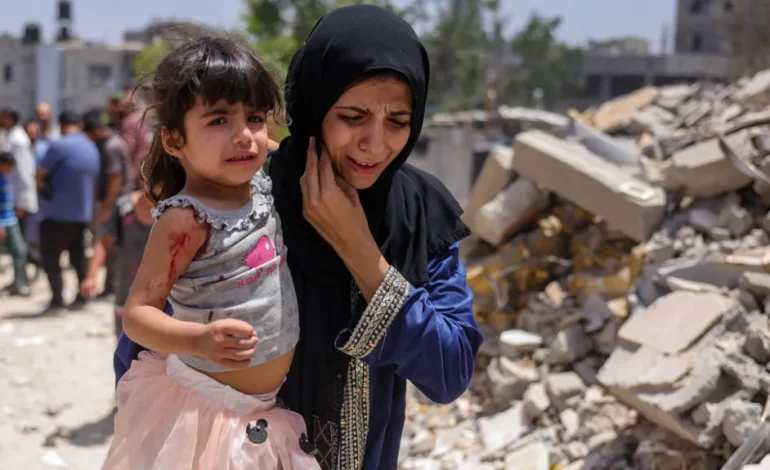EU Raises Concerns Over Israeli Military Action in Gaza

The European Union has voiced strong concerns over Israel’s ongoing military campaign in Gaza, with EU foreign policy chief Kaja Kallas stating that the strikes “go beyond what is necessary” to target Hamas, BBC reports.
The comments come amid a rising civilian death toll and mounting international scrutiny of Israel’s actions in the densely populated territory.
Kallas emphasized that while the EU supports Israel’s right to self-defense, recent military operations have disproportionately affected Gaza’s civilian population.
“The suffering of the people is untenable,” she said, noting that nearly all EU-funded humanitarian aid is unable to reach those in need due to Israeli restrictions.
The Gaza Health Ministry, operated by Hamas, reports that nearly 3,924 people have been killed since Israel resumed its offensive in March following a ceasefire. Airstrikes have reportedly hit civilian areas, including a school sheltering displaced families and a home in Khan Younis where nine children from one family were killed.
EU officials also criticized a new aid distribution model jointly backed by the US and Israel that bypasses the United Nations and international humanitarian organizations. The system, run by a newly formed Gaza Humanitarian Foundation and staffed by private contractors, has been rejected by the UN as “unethical and unworkable.”
Kallas stated, “We don’t support the privatisation of the distribution of humanitarian aid. Humanitarian aid cannot be weaponised.”
Kallas’ remarks echo recent criticism from several Western leaders. German Chancellor Friedrich Merz questioned the goals of Israel’s continued offensive, saying civilian harm “can no longer be justified by a fight against Hamas terrorism.” EU Commission President Ursula von der Leyen described Israeli attacks on civilian infrastructure as “abhorrent” and “disproportionate.”
The EU, one of Gaza’s largest humanitarian donors, has launched a formal review of its trade agreement with Israel. Kallas confirmed that options for EU action will be presented at the next meeting of EU foreign ministers in Brussels on June 23.
These developments coincide with growing calls from Canada, the UK, and France for an immediate halt to Israel’s military operations. The UK recently announced the suspension of its trade negotiations with Israel in response to the situation.
Humanitarian conditions in Gaza continue to deteriorate. UN agencies warn that 2.1 million residents are facing catastrophic food insecurity after months of blockade, which Israel only partially lifted last week. Dozens of civilians were reportedly injured by gunfire at overcrowded aid sites, according to the UN.
Meanwhile, Israeli Prime Minister Benjamin Netanyahu reiterated plans to relocate Gaza’s population to a “sterile zone” in the south, alongside what he referred to as the “voluntary emigration” of much of the population. Critics have characterized these proposals as forced displacement.
Israel began its military campaign in response to a Hamas attack on October 7, 2023, which resulted in 1,200 deaths and the kidnapping of over 250 individuals. Since then, the Gaza Health Ministry estimates that more than 54,000 people have been killed.









The latest news in your social feeds
Subscribe to our social media platforms to stay tuned